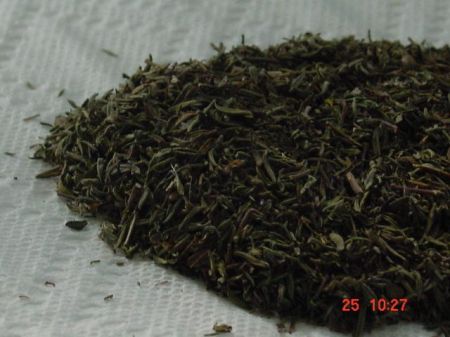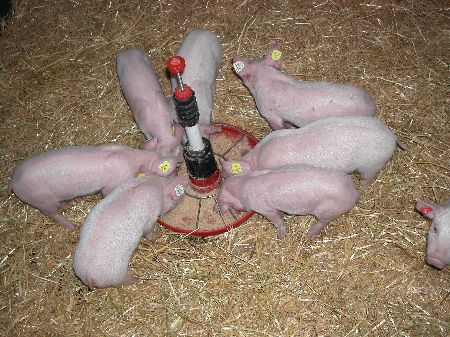Weaning the piglets from the mother sow is a crucial time for the development of the piglets. Changing feed, changing stables and regrouping mean stress for the animals and often lead to the outbreak of diarrheal diseases. As a bacterial cause, E. coli bacteria play an important role. Diarrheal diseases have a significant impact on the financial success of piglet rearing. Not only dead piglets, but also poor daily weight gain, increased feed consumption and the emergence of stunted piglets reduce the farm's success. In the conventional sector, antibiotic performance enhancers were and are used to provide the piglets with better starting conditions. Due to the general ban on all antibiotic performance enhancers, natural-based alternatives are now of interest not only for organic farms but also for conventional farms.
 The positive effects of herbs and spices on the gastrointestinal tract have long been known in humans. Various herbal mixtures are also being used more and more frequently on agricultural animals. Plant-based active ingredients are particularly suitable in the organic sector because they are harmless to consumers' health. An antimicrobial effect of thyme (Herba Thymi) in vitro, especially against E. coli bacteria, has already been described by several authors. The aim of this project deals with the in-vitro and in-vivo determination of the antimicrobial effectiveness of crushed thyme. For this purpose, feeding trials and surveys are carried out in practical farms.
The positive effects of herbs and spices on the gastrointestinal tract have long been known in humans. Various herbal mixtures are also being used more and more frequently on agricultural animals. Plant-based active ingredients are particularly suitable in the organic sector because they are harmless to consumers' health. An antimicrobial effect of thyme (Herba Thymi) in vitro, especially against E. coli bacteria, has already been described by several authors. The aim of this project deals with the in-vitro and in-vivo determination of the antimicrobial effectiveness of crushed thyme. For this purpose, feeding trials and surveys are carried out in practical farms.
The following questions, among others, should be examined:
1. Is thyme able to prevent piglet diarrhea caused by E. coli bacteria, or does the addition of thyme reduce the excretion of hemolytic pathogenic E. coli bacteria?
2. How does adding thyme to rearing feed affect rearing performance (daily weight gain, feed conversion)?
3. Does thymol (=one of the active chemical components) accumulate in the plasma of the piglets and can an effect on the respiratory tract be derived from this?
4. How does the acute phase protein haptoglobin behave in the different groups?
Based on the incidence of piglet diarrhea and the determination of E. coli excretion using bacteriological fecal examination, conclusions can be drawn about the effectiveness of the herbal drug.







